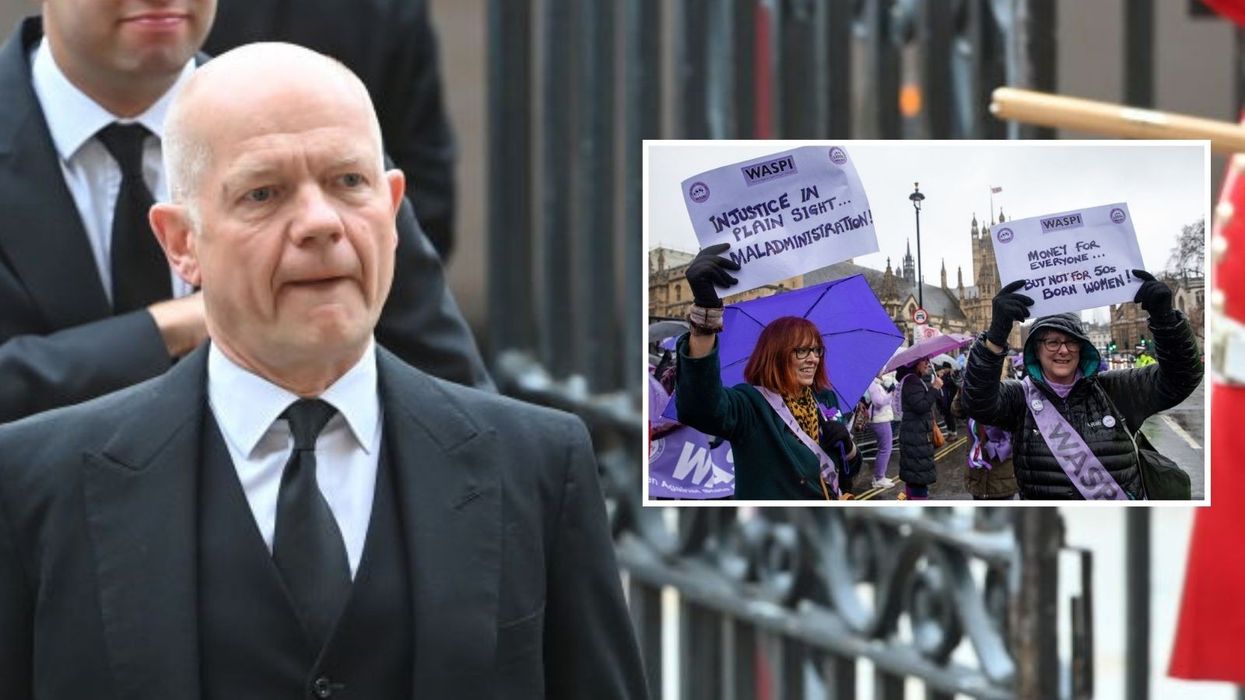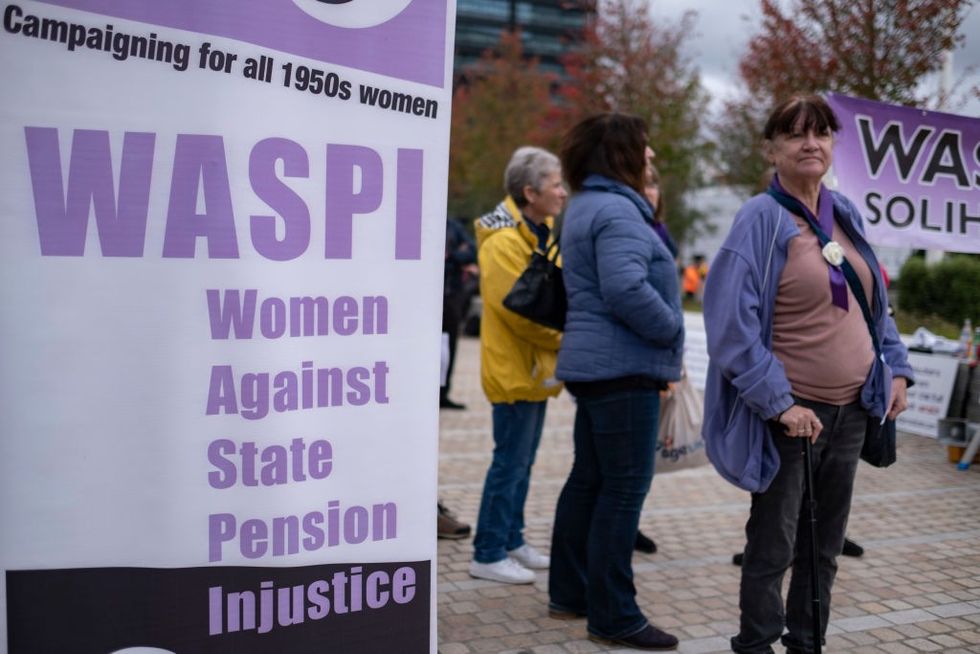'Waspi women were given fair notice - it is not right to take compensation from the taxpayer’

A landmark report last week found thousands of Waspi women should be entitled to compensation
|GETTY

A landmark report last week found thousands of Waspi women should be entitled to compensation
Don't Miss
Most Read
Latest
A former pensions minister has insisted Waspi women were given adequate notice of the changes to the state pension age for women.
Despite the ombudsman ruling in their favour, the Rt Hon William Hague has said he does no think it’s not right to take taxpayer money to fund the compensation of the affected Waspi (Women Against State Pension Inequality), arguing no injustice has take place.
He said: “There are clear cases where injustice has occurred and taxpayers should pay for compensation — this is not one of them.”
After being appointed pensions minister in 1993, William Hague said he was met with a “large, unexploded bomb” which was the “unlawful provision” regarding the discrimination between men and women in pension system.
At this time, men received their pension at 65 but women could claim it at 60. Mr Hague was then committed to finding a solution to the problem, which he did with the Pensions Act 1995.
The act saw the implementation of the women’s state pension age change from 60 to 65, in line with the men’s state pension age.

The ombudsman’s second report recommended that the Government pay out a “level four” amount of compensation
|GETTY
The transition into a later pension age for women was to be implemented gradually over 15 years – to be fully completed by 2020.
Some 3.6 million women born between April 6, 1950, and April 5, 1960 were left financially worse-off after the equalisation of the state pension age between men and women.
They were not adequately informed of the changes regarding when they would be able to claim their full retirement entitlement, according to the Parliamentary and Health Service Ombudsman (PHSO)’s report.
However, in an article for The Times, Mr Hague said officials wrote to every individual who might be affected to make sure they knew.
The ombudsman’s second report recommended that the Government pay out a “level four” amount of compensation. This means some women could get a payout of between £1,000 and £2,950 each.
Waspi campaigners have urged policymakers to put forward a “level six” amount of compensation which would award £10,000 to those affected.
Before agreeing to compensation, Mr Hague urged the ombudsman to consider where the money will come from.
He said it would be by taxing those of working age in their 30s. He said these people may not even get their state pension until their 70s and by then they “are highly unlikely to have triple-lock increases in that pension because that will have truly become unsustainable by then”.
Mr Hague added: “Is it morally right to take away more of their income in compensation for a policy that, even with its later modifications, was publicly set out many years in advance?
“All things considered; I don’t think so. Today’s leaders will understandably duck the question. But they should steel themselves to explain that mass compensation must have its limits and is hard to justify in this case.”
The key argument from the ombudsman was that affected women were not given enough notice, however the former pensions minister argued millions of people were fully aware of the impending change, over many years.
He said: “The principle behind the entire policy was to be able to treat people equally. None of this, on its own, justifies paying compensation.”
There was only clear opposition of the policy change after the coalition government took office in 2010 and changed the original plan to raise the women’s pension age quicker from 2018, he said.
With a general election looming, political parties could use this issue to drum up support but the politician warned they each may have their own agenda.
Mr Hague said: “The political parties have an election coming up but they also know there is no money to spare, so they say they will think about it “in due course” (Conservative) or give it ‘serious consideration’ (Labour).
“Many MPs want to please the constituents who complain to them, so they campaign for large compensation, while often arguing for lower taxes at the same time. It’s easier for me, as one who has long since stopped running for election, to blurt out the truth as I see it.”
LATEST DEVELOPMENTS:
Mr Hague explained although he can sympathies with the women affected, it is not enough to warrant the compensation as there have been several policies passed and implemented with “only months or even days of notice”.
There have been clear cases where such serious harm or injustice has occurred that taxpayers can be expected to pay for compensation i.e. the sub-postmasters scandal and the tragedy of infected blood.
However, he argued “it is much harder to justify large-scale compensation for the implementation of policies that were openly declared and debated in a democratic parliament, years before coming into force”.
He continued: “In the same budget of 2010 that began accelerating the increase in the women’s pension age, many changes were made with only months or even days of notice.
“Child tax credits were cut for better-off families, and VAT and capital gains tax went up. The next year, students’ tuition fees were trebled. We can argue for or against these things, but as in many budgets under all governments they happened at short notice and affected millions of people.
“What about Gordon Brown’s raid on pension funds in 1997, which took many billions out of occupational pension schemes? There is no way of compensating people for such changes, even though minimal notice was given, without recycling much of the national income among ourselves in compensation payments.”
Experts have estimated that paying compensation to all women born in the 1950s could cost the Government between £3.5billion and £10.5billion.
A DWP spokesperson told GB News: “We will consider the Ombudsman’s report and respond in due course, having cooperated fully throughout this investigation.
“The Government has always been committed to supporting all pensioners in a sustainable way that gives them a dignified retirement whilst also being fair to them and taxpayers.
“The state pension is the foundation of income in retirement and will remain so as we deliver a further 8.5 per cent rise in April which will increase the state pension for 12 million pensioners by £900.”










